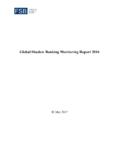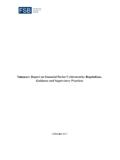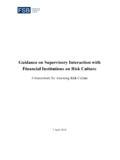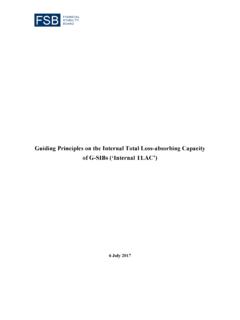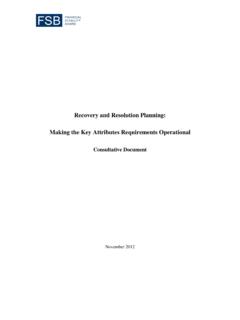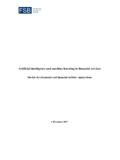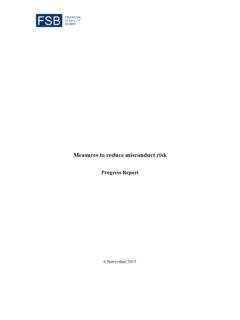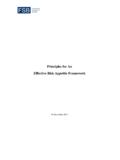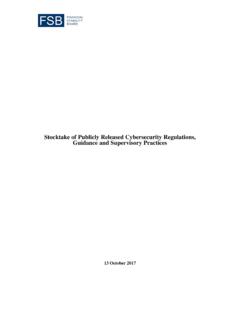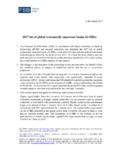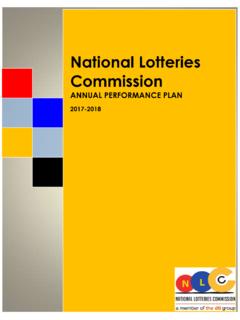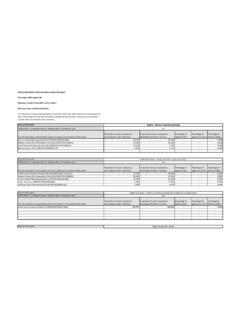Transcription of To G20 Finance Ministers and Central Bank Governors
1 THE CHAIR. 13 March 2018. To G20 Finance Ministers and Central Bank Governors G20 Finance Ministers and Central Bank Governors are meeting against a backdrop of strong and balanced global growth. This momentum is underpinned by a resilient global financial system that is the product of determined efforts by the G20 and FSB over the past decade. The FSB's priorities under the Argentine Presidency are designed to build on that strong foundation to reinforce the G20's objective of strong, sustainable and balanced growth through: 1. Vigilant monitoring to identify, assess and address new and emerging risks;. 2. Disciplined completion of the G20's outstanding financial reform priorities;. 3. Pivoting focus from new policy development towards evaluating policies that have been implemented to ensure the reform programme is efficient, coherent and effective, and addressing any unintended consequences; and 4.
2 Optimising how the FSB works to maximise its effectiveness by capitalising on its advantages as an efficient and responsive organisation, led by and dependent on the contributions and consensus of its members. 1. VIGILANT MONITORING OF EMERGING RISKS. The FSB regularly scans the horizon to identify and assess emerging risks through the bi-annual Early Warning Exercise conducted jointly with the IMF; candid and timely discussions of macro- financial developments at its Steering Committee and Plenary; expert member analysis; and structured analysis of trends and developments. The recent sharp rise in financial market volatility from record lows crystallised some of the risks which the FSB and member authorities have been actively monitoring and addressing (including in a number of domestic stress tests).
3 The proximate triggers of the short period of market turbulence in February were changing expectations of global growth and the inflation outlook, with associated implications for the evolution of market rates and sustainability of asset prices. Despite the size of some market moves, contagion was limited, and core markets and systemic infrastructure operated effectively throughout. Such resilience of the financial system to shocks, whatever their source, underscores the importance of G20 reforms. Large banks are considerably stronger, more liquid and more focused. They are now subject to greater market discipline as a consequence of globally-agreed standards to end too-big-to-fail. A series of measures are eliminating toxic forms of shadow banking and are transforming the remaining activity into resilient market-based Finance .
4 Reforms to over-the-counter derivative markets are replacing a complex and dangerous web of exposures with a more transparent and robust system that better serves the real economy. Crypto-assets Responding to the concerns of members, the FSB has undertaken a review of the financial stability risks posed by the rapid growth of crypto-assets. The FSB's initial assessment is that crypto-assets do not pose risks to global financial stability at this time. This is in part because they are small relative to the financial system. Even at their recent peak, their combined global market value was less than 1% of global GDP. In comparison, just prior to the global financial crisis, the notional value of credit default swaps was 100% of global GDP. Their small size, and the fact that they are not substitutes for currency and with very limited use for real economy and financial transactions, has meant the linkages to the rest of the financial system are limited.
5 The market continues to evolve rapidly, however, and this initial assessment could change if crypto-assets were to become significantly more widely used or interconnected with the core of the regulated financial system. For example, wider use and greater interconnectedness could, if it occurred without material improvements in conduct, market integrity and cyber resilience, pose financial stability risks through confidence effects. To support monitoring and timely identification of emerging financial stability risks, the FSB will identify metrics and any data gaps. Crypto-assets raise a host of issues around consumer and investor protection, as well as their use to shield illicit activity and for money laundering and terrorist financing. At the same time, the technologies underlying them have the potential to improve the efficiency and inclusiveness of both the financial system and the economy.
6 Relevant national authorities have begun to address these issues. Given the global nature of these markets, further international coordination is warranted, supported by international organisations such as CPMI, FATF and IOSCO. The FSB will identify metrics for enhanced monitoring of the financial stability risks posed by crypto-assets and update the G20 as appropriate. 2. DISCIPLINED COMPLETION OF THE G20'S OUTSTANDING FINANCIAL. REFORM PRIORITIES. The FSB is making significant progress on the G20's outstanding financial reform priorities, with a large number of initiatives on track to be completed by or before the Buenos Aires Summit. 2. The recent agreement on a package finalising the Basel III banking reforms marks completion of one of the most significant areas of post-crisis policy design.
7 Emphasis will now be on full, timely and consistent implementation in order to secure the benefits of a resilient international banking system, equipped with the regulatory certainty to lend and invest across borders. Attention can now be dedicated to the small number of remaining areas where G20 financial reform priorities need to be completed. De-risking in correspondent banking relationships has threatened the ability of some emerging market and developing economies to access the international financial system, with consequences for financial inclusion, and it risks driving flows underground. The FSB is on track to deliver on all elements of its correspondent banking Action Plan by the Buenos Aires Summit, specifically regular production of data on trends; clarification of regulatory expectations.
8 Supporting domestic capacity-building through technical assistance; and stronger tools for due diligence by banks. The FSB welcomes the Wolfsberg Group initiative, which represents a powerful and timely private sector solution to help clarify what major international banks expect respondent banks to demonstrate in order to more safely and reliably access international banking services. The G20 has also tasked the FSB with identifying the barriers that remittance providers face in accessing banking services. This was motivated by specific concerns about impacts of de-risking on the remittance sector and the consequences for developing countries, where remittance flows are a key source of funds. In response, the FSB has identified four strategic recommendations for national authorities in the areas of consistency of regulatory frameworks, effectiveness of supervision, application of technology, and technical assistance.
9 By the Buenos Aires Summit the FSB will deliver a final report on policy development under its Action Plan. After this, relevant standard-setting and international bodies, under the coordination of the FSB, will pick up the mantle of monitoring implementation of the Action Plan by national authorities. For this March G20 meeting, the FSB has delivered a progress report on the correspondent banking Action Plan. A final report will be issued by the Buenos Aires Summit. For this March G20 meeting, the FSB has delivered four strategic recommendations for improving the access of remittance providers to banking services. The FSB will deliver a report on the implementation of these recommendations to the G20 Finance Ministers and Central Bank Governors in July 2019. The FSB's coordinated workplan to reduce misconduct in the financial sector has made important strides over the past year in promoting incentives for good behaviour through a variety of tools including: standards and codes, such as the Global FX Code; IOSCO's toolkit of measures on wholesale market conduct; and the FSB's principles for sound compensation practices.
10 The FSB. will shortly complete the final element of its work when it publishes a toolkit for firms and supervisors on the use of governance frameworks to mitigate misconduct risk. This report 3. addresses three areas: i) dealing with those individuals with a history of misconduct who move between firms (so-called rolling bad apples'); ii) strengthening senior-level accountability by being clear about responsibilities within firms; and iii) examining the role of corporate culture in misconduct. In addition, guidance on the use of compensation tools to promote good conduct has now been published in final form and is to be followed up by recommendations on national data collection on compensation and conduct. G20 national authorities can now consider how they can best draw on this work to strengthen and maintain conduct in their own financial sectors.
